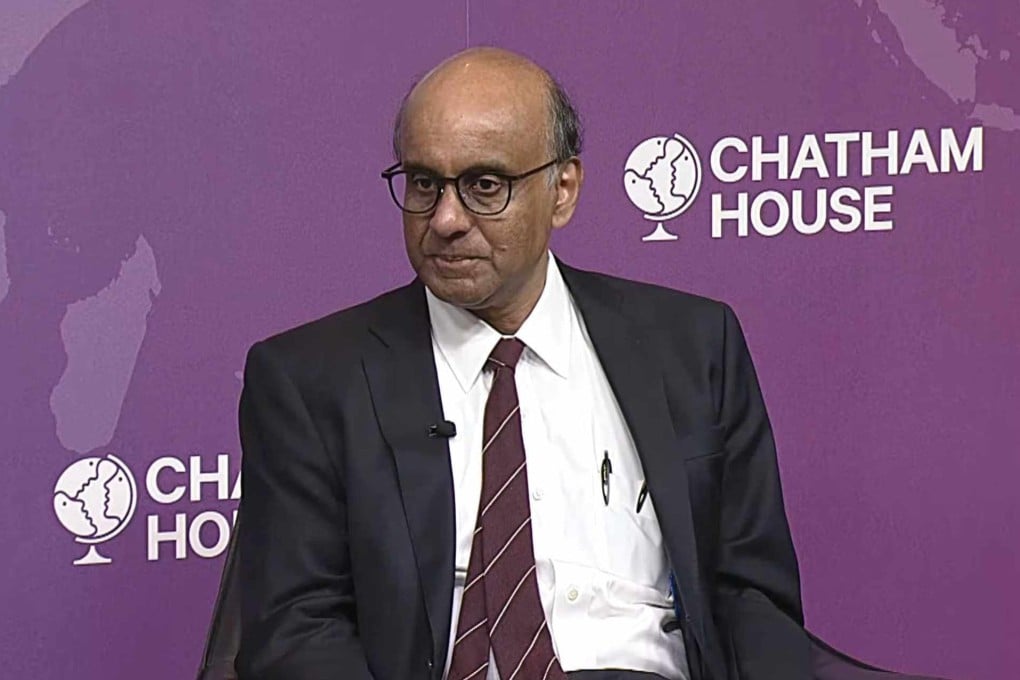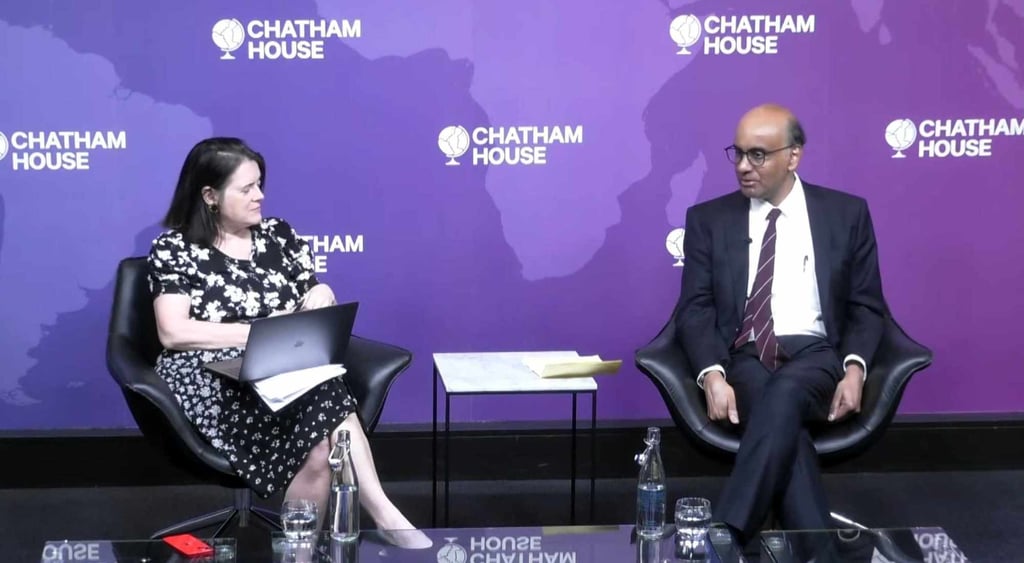Singapore’s Tharman urges US, China to abandon ‘hubris’ of viewing own system as superior
- Tharman says there are ‘no saints’ in US-China relations and calls on the superpowers to cooperate in areas of common ground, such as ensuring fair trade
- US politics since 2016 had occasioned a ‘step change’ in how China is increasingly viewed as a threat and such ‘politics of pessimism and grievance’ must be redressed, Tharman adds

Speaking at the Chatham House think tank in London on Tuesday, the senior minister echoed calls made by other regional leaders for the superpowers to cooperate in areas where they had common ground.

The 66-year-old last week announced he was stepping down from the long-dominant People’s Action Party (PAP) to run for the largely ceremonial position of president – a role he said he would use to “project Singapore’s interests and voice of reason in an increasingly turbulent world”.
Asked during a question-and-answer session on what advice he would give to the leaders of China and the US, said “there are no saints” in the relationship between the superpowers.
“Both of them need to make adjustments. Both of them need to avoid a sense of hubris with regard to the superiority of their own systems,” Tharman said.
“And both of them need to recognise that there’s actually a great deal in common in the way they go about trying to improve lives and grow incomes,” the minister said, noting that China, unlike the erstwhile Soviet Union, was “deeply inserted in the liberal economic order and has a deep interest in its preservation”.
“Those are huge grounds for seeing eye to eye and developing rules to make sure that trade is fair, investment is fair and intellectual property is protected. These are rules that can be developed,” Tharman said.